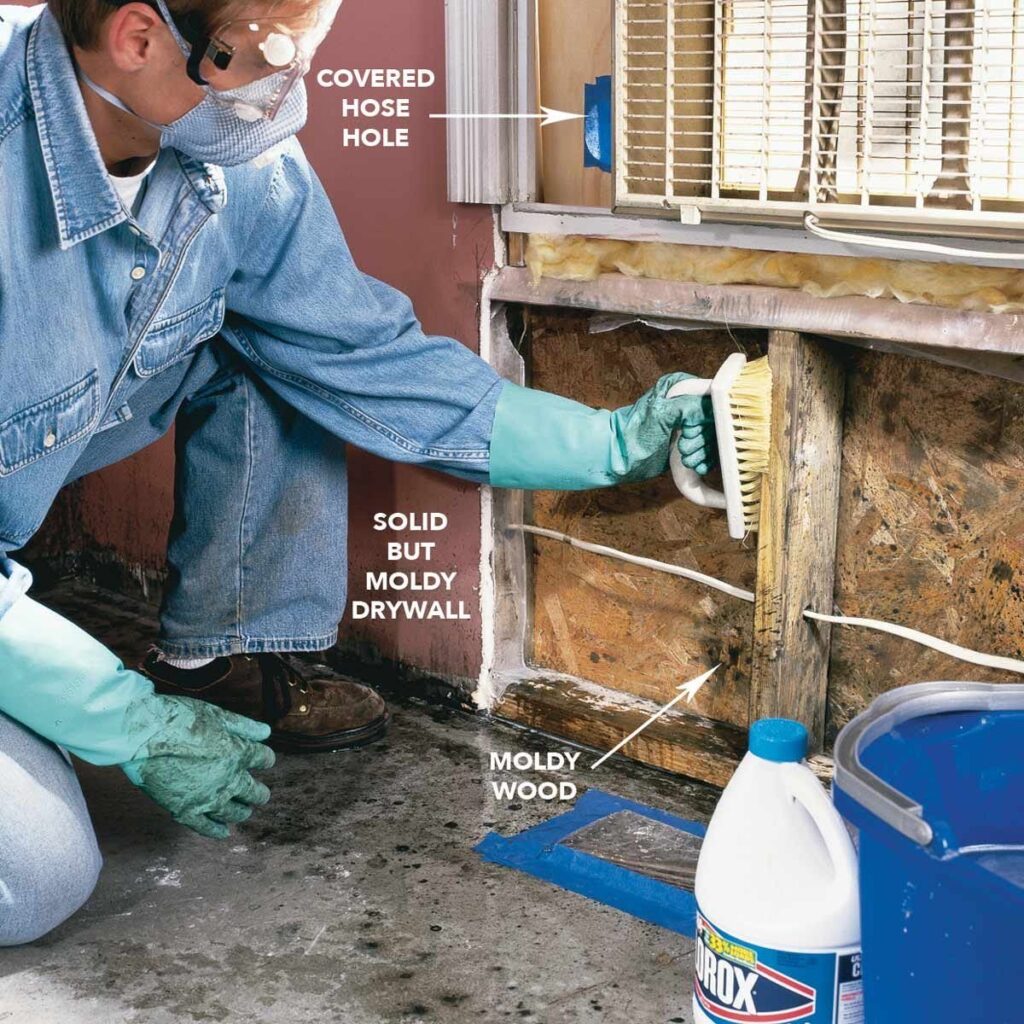
Mold remediation is the process of removing mold from buildings, homes, and other structures. Mold can grow in damp or humid areas, such as bathrooms, kitchens, and basements, and can be harmful to your health if left untreated. Mold remediation involves identifying and addressing the source of the mold, containing the mold to prevent it from spreading, removing the mold and any contaminated materials, and cleaning and sanitizing the area.
There are several steps involved in mold remediation. First, the source of the mold must be identified and addressed. This may involve repairing leaks or improving ventilation to prevent moisture from accumulating. Next, the affected area must be contained to prevent the mold from spreading to other parts of the building. This is typically done by sealing off the area with plastic sheeting and using negative air pressure to ensure that mold spores do not escape into other areas of the building.
Once the area is contained, the mold can be removed. This may involve using specialized equipment, such as air scrubbers and HEPA vacuums, to remove the mold spores from the air. Any contaminated materials, such as drywall or insulation, must also be removed and disposed of properly. Finally, the area must be cleaned and sanitized to prevent any remaining mold spores from growing.
Businesses that specialize in mold remediation may have different structures depending on their size and scope. Some smaller companies may be owned and operated by a single individual, while larger companies may have multiple employees and a more hierarchical structure. For example, a larger mold remediation company may have a management team that oversees the work of technicians and administrative staff, while a smaller company may have a single owner-operator who performs all aspects of the remediation process.
One example of a business structure for mold remediation is a franchise. Franchises are a type of business where the franchisee buys the rights to use a brand name and business model from a franchisor. In the case of mold remediation, a franchisee would purchase the right to use the name and business practices of an established mold remediation company. This can be advantageous for new business owners who may not have experience running a company, as they can rely on the established procedures and support of the franchisor.
In addition to franchise models, there are also independent mold remediation companies that operate on their own. These companies may have a more flexible business structure, allowing them to adapt to the needs of individual clients and projects. For example, an independent mold remediation company may have a smaller team of employees who are able to work on multiple projects simultaneously.
Mold remediation can be an important service for homeowners and businesses that are dealing with mold issues. By understanding the process of mold remediation and the different business structures that may be involved, individuals can make informed decisions when selecting a mold remediation company to work with.
